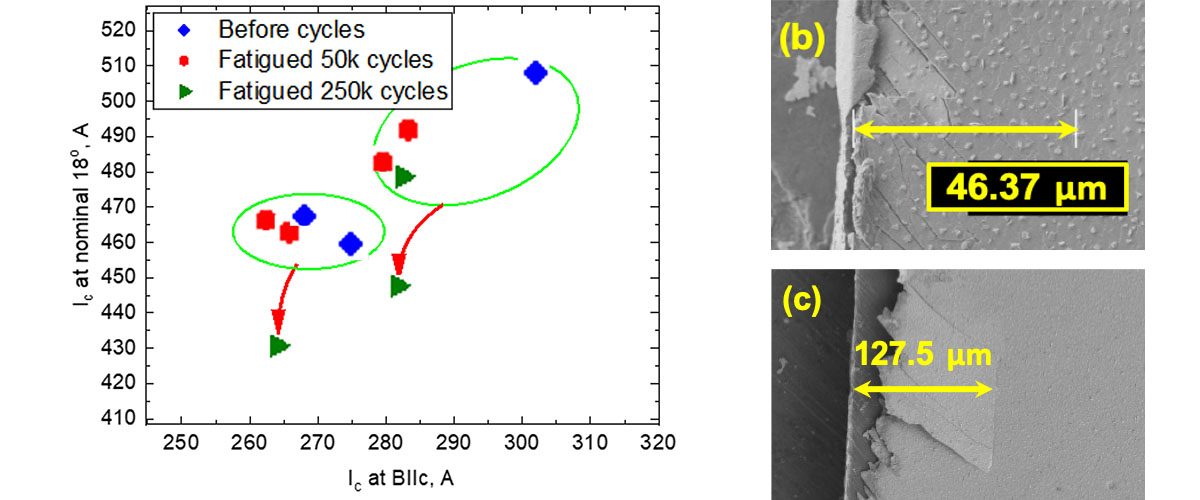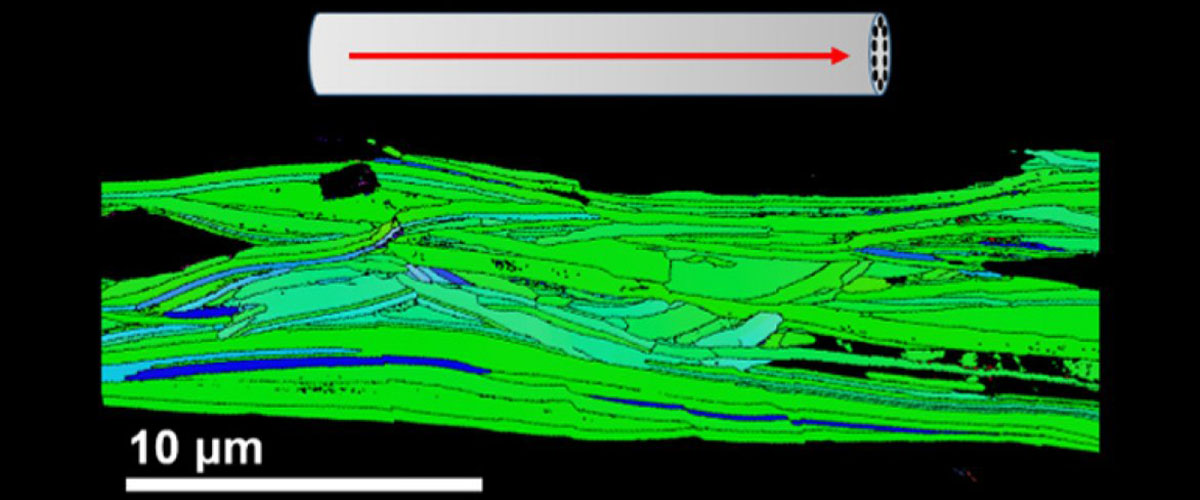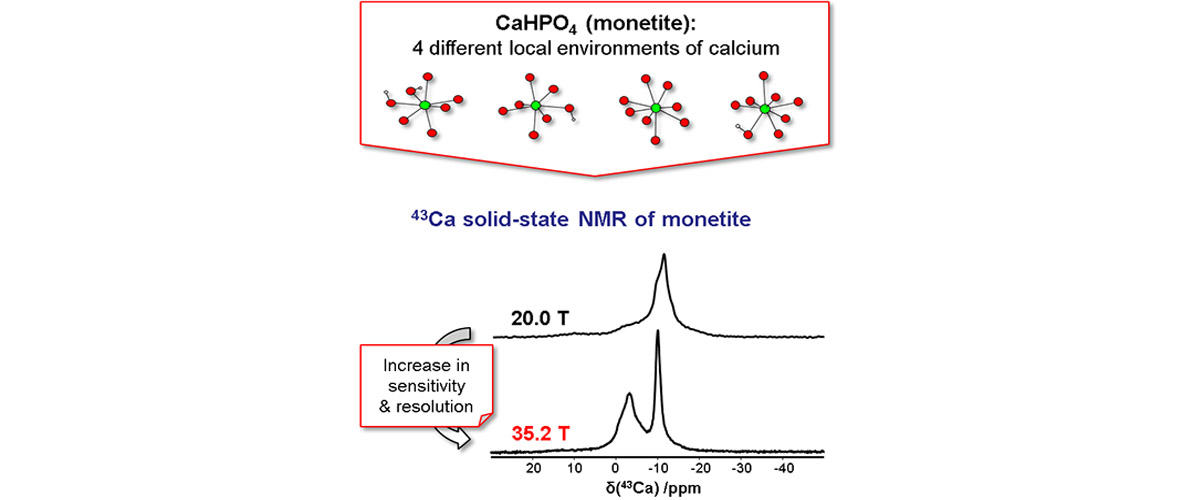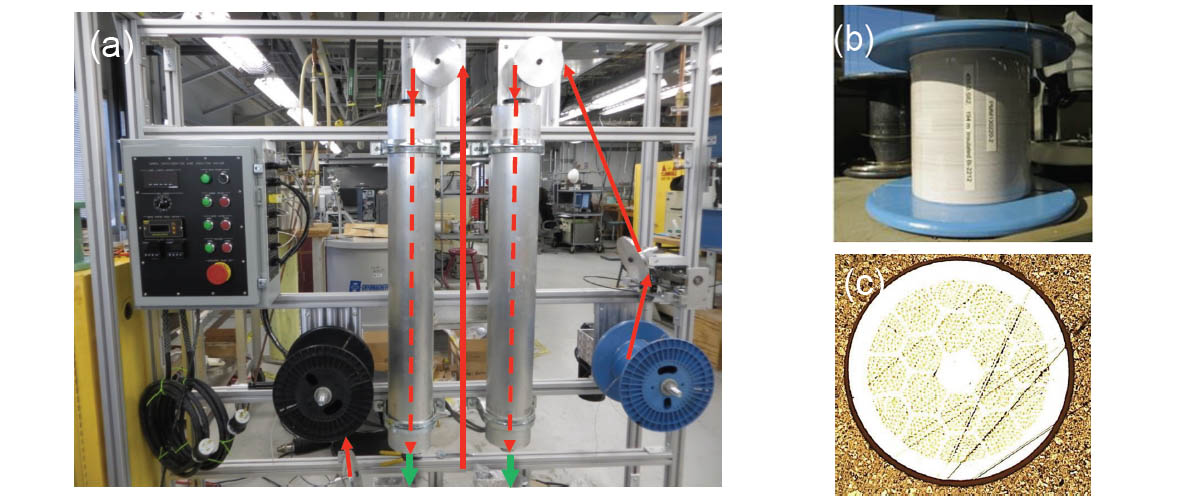What did scientists discover?
MagLab researchers subjected Rare-Earth Barium Copper Oxygen (REBCO) tape to cyclic tensile loading similar to what occurs in the MagLab's 32 T magnet and what is expected in the ultra-high field magnets of the future. They measured the performance of the tape and saw no degradation after 50,000 cycles (the number of cycles intended for a magnet to survive). Some degradation was seen when tapes were subjected to 250,000 cycles.
Researchers know that cracks exist at the edge of the tape due to the manufacturing process. These cracks grew up to 3.2% of the tape width during the 250,000 cycle test, which is acceptable.
Why is this important?
The MagLab's magnets are expected to cycle up to 50,000 times during their lifetime. It is essential to verify that the materials in these magnets will continue to operate for this large number of high stress cycles. This test demonstrated that REBCO tape is a promising material for future HTS magnets at the MagLab.
Who did the research?
R. Walsh1, K. Radcliff1, X. Hu1, D. Abraimov1, I. Dixon1, H. Bai1
1National MagLab, Florida State University
Why did this research need the MagLab?
The MagLab is one of very few facilities worldwide with the equipment and expertise needed to perform fatigue testing at 4.2 K and critical current measurements with the magnetic field at the correct angle with respect to the tape.
Details for scientists
- View or download the expert-level Science Highlight, Fatigue cycling of high-temperature superconducting REBCO tapes at 4.2 K
Funding
This research was funded by the following grants: G.S. Boebinger (NSF DMR-1644779); G.S. Boebinger, M. Bird, L. Cooley (NSF DMR-1938789)
For more information, contact Mark Bird.






